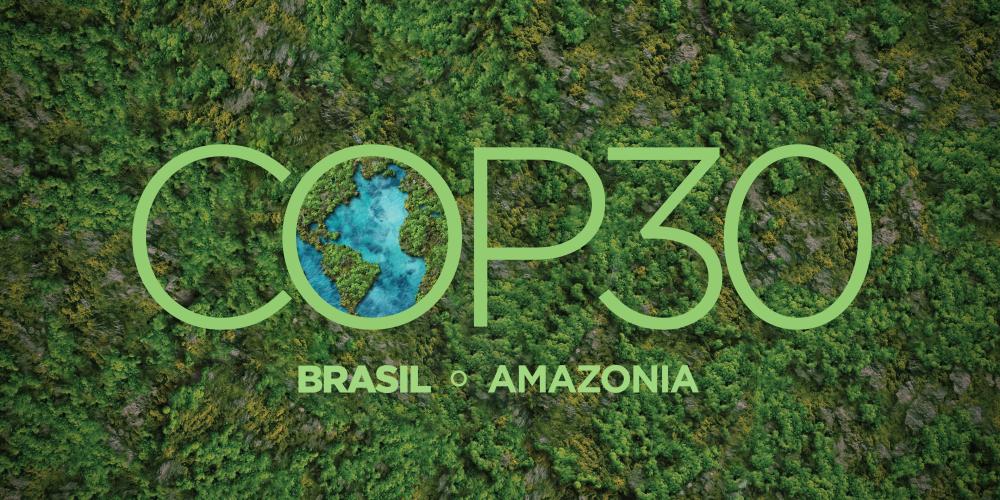
From 10 to 21 November 2025, the world will gather in Brazil for the UN Climate Summit COP 2025, where countries will negotiate new climate measures. The scientific foundation for those decisions traditionally comes from the six-yearly report of the Intergovernmental Panel on Climate Change (IPCC). The next edition, the Seventh IPCC Assessment Report, will be published in 2028 and written by hundreds of international experts. Remarkably, four of the authors have ties to the Vrije Universiteit Brussel (VUB). The Belgian VUB researchers are also the only contributors from Belgium, giving the university an exceptionally strong presence in the world’s most influential climate report.
“The kick-off takes place at the end of this year in Paris. The final version is due by October 2027, with several interim deadlines”, says VUB glaciologist Prof. Harry Zekollari (VUB Department of Water and Climate). “The IPCC does not conduct research itself, but compiles and assesses recent scientific studies. We provide an overview of what science currently knows about the climate.”
Zekollari studies the rate at which glaciers are disappearing worldwide and the resulting impact on sea level. His team develops advanced models that predict the evolution of glaciers in the past and the future. “Our model shows that around 25 % of global glacier mass will disappear by 2100 if warming is limited to 1.5 to 2 degrees. Under stronger warming, that figure could rise to 50 %”, he says. “We compare our results with those of other research groups. When they align, it strengthens the credibility of our conclusions.”
Within the IPCC report, Zekollari is responsible for the theme of the cryosphere: everything related to ice, from glaciers and ice sheets to permafrost. He is contributing to a chapter on the long-term stabilisation of the climate system. “We are looking at so-called overshoot scenarios”, he explains, “in which warming temporarily exceeds 1.5 degrees before declining again. We then study how sustainable recovery of the climate system might be achieved. That could involve removing CO₂ from the atmosphere, although this remains technically and socially challenging.”
Although the IPCC report is scientifically neutral, Zekollari does not shy away from the broader social context. “The fossil fuel industry has known for decades what the consequences of CO₂ emissions are, yet it continues to delay the transition. Science shows, however, that doing nothing is not an option: inaction will cost far more than undertaking the transition.”
According to Zekollari, the Belgian contribution to the IPCC report is all the more significant as the American contribution declines. “It is dramatic that leading scientists from U.S. government institutions are no longer able to take part. Science must not come under pressure from political or economic interests.”
Dr Chris Smith, Prof. David De Vleesschouwer, and Prof. Joeri Rogelj – all with strong ties to the VUB – are also contributing to the report. With these four authors, the VUB plays a unique role in shaping the scientific foundation of international climate policy, which will take centre stage at the 2028 COP Climate Summit. Their collective contribution highlights not only the strength of Brussels-based climate research but also the university’s social mission: Science for the people, science for the planet.
The four VUB-linked authors of the Seventh IPCC Report:
-
Prof. Harry Zekollari is a glaciologist with the VUB Water and Climate research group and a Lead Author of the first part of the report (The Physical Science Basis).
-
Dr Chris Smith, a British climate researcher at the VUB and the International Institute for Applied Systems Analysis (IIASA) in Austria, is Coordinating Lead Author of the same section.
-
Prof. David De Vleesschouwer, VUB alumnus and PhD graduate, now Professor at the University of Münster, is Lead Author on climate systems in the distant past.
-
Prof. Joeri Rogelj, VUB honorary doctor and Professor at Imperial College London, is a Lead Author of the seventh section of the report on mitigation. He previously co-authored the Special Report on Global Warming of 1.5°C (2018) and the Sixth IPCC Report.
Read more: